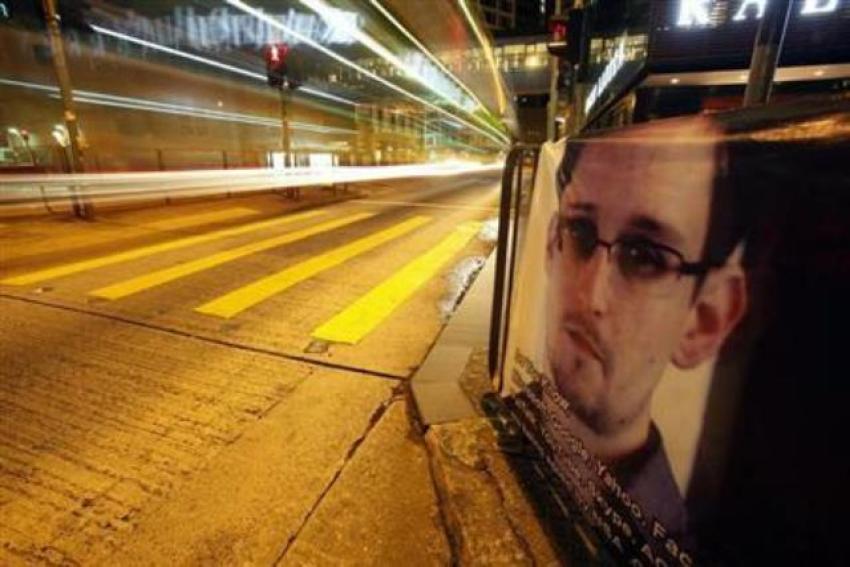Edward Snowden brands advancing AI ‘greatest danger’ for future

Former NSA contractor and whistleblower Edward Snowden warned that continued advancement of artificial intelligence could lead to more pernicious policing of people around the world through the creation of a “permanent record” of their life.
The warning comes ahead of the release of Snowden’s book, Permanent Record, set for release on Tuesday.
“The greatest danger still lies ahead, with the refinement of artificial intelligence capabilities, such as facial and pattern recognition. An AI-equipped surveillance camera would be not a mere recording device, but could be made into something closer to an automated police officer,” Snowden, 36, said in a two-hour interview with The Guardian in Moscow, where he currently lives in exile.
In June 2013, Snowden revealed himself as the former undercover CIA employee who publicly shared information on how the NSA was secretly pursuing a way to build a mass surveillance system that would record every single phone call, text message, and email. The system could, the book description claims, give the government a window into the "private lives of every person on earth."
Snowden could face up to 30 years in prison if convicted, but Russia refuses to extradite him.
“I was very much a person the most powerful government in the world wanted to go away. They did not care whether I went away to prison. They did not care whether I went away into the ground. They just wanted me gone,” he told The Guardian.
Six years later, Snowden, who is still pushing for France to grant him asylum, has settled into a new life in Russia where he is no longer in fear of being recognized in public.
Snowden is not the only one who has been raising concerns about the dangers of AI for the future.
Laura Nolan, a former top Google software engineer, who resigned from the company last year in protest at being sent to work on a project to dramatically enhance US military drone technology, is now calling for all autonomous AI killing machines to be banned because of their potential to cause mass atrocities or even start a war, according to another report in The Guardian.
“The likelihood of a disaster is in proportion to how many of these machines will be in a particular area at once. What you are looking at are possible atrocities and unlawful killings even under laws of warfare, especially if hundreds or thousands of these machines are deployed,” she said. “There could be large-scale accidents because these things will start to behave in unexpected ways. Which is why any advanced weapons systems should be subject to meaningful human control, otherwise they have to be banned because they are far too unpredictable and dangerous.”
Technology trackers like Daily Star writer Michael Moran also recently raised concern about the impact brain-to-computer interfaces can have on society.
“Certainly there are uses to neural-computer links that will see the super-rich getting even richer and the poor being not only left behind, but left behind with no clear way to catch up. We will see the beginning to two separate strains of humanity – computer-enhanced beings who can buy any skills they need in seconds, and basic humans who need to spend half a lifetime learning the hard way,” he said. “Wars have been fought over less.”
In his 2018 book The War on Normal People, 2020 Democrat presidential candidate Andrew Yang also warned that America is careening toward a dystopian future without jobs due to increased automation and technological advances.
To prevent the inevitable “widespread squalor, despair, and violence” that will result from millions of workers being permanently displaced by technology, Yang, 44, wants to start giving every adult citizen $1,000 a month in universal basic income.
“Self-driving vehicles are one of the most obvious job-destroying technologies, but there are similar innovations ahead that will displace cashiers, fast food workers, customer service representatives, administrative assistants, and even well-paid white-collar jobs like wealth managers, lawyers, and insurance agents,” Yang warns. “Our economic engine is stalling out in many places, and automation is eliminating livelihoods for hundreds of thousands of the most vulnerable Americans in regions across the country. New jobs are less numerous, are most often created in towns located far from those most hard hit, and require far different skills than the ones that are being lost.”



























